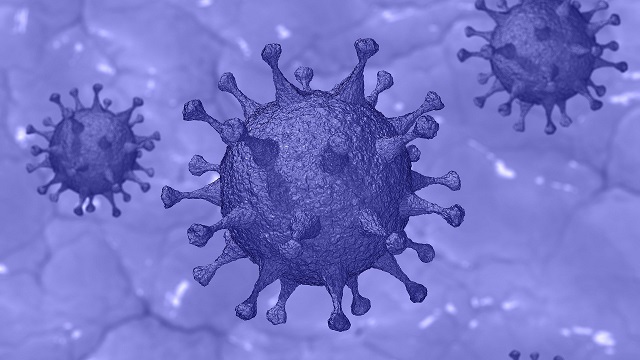Information sometimes leads to misinformation, and that’s exactly what’s happening with COVID-19. While some pet owners put masks on their pets, there are a few others who have abandoned (or even killed!) their pets in order to avoid the spread of the disease. To help prevent despicable acts like those, we want to clarify some things – and that’s why you’re now reading this article.
1. What’s the difference between Coronavirus and COVID-19?
Coronavirus is not the name of a virus, but of a group of different viruses, which includes COVID-19 (COrona VIrus Disease 2019). To date, there are 7 known coronaviruses that can affect and infect humans. You remember SARS-COV (known as Severe Acute Respiratory Syndrome) being on the news back in 2002, right? That’s also one of the 7 Coronavirus that make up the group.
Beyond those 7 Coronaviruses that can affect humans, there are other Coronaviruses that animals can contract – keep reading and we’ll get there in a bit! ?
2. Can pets get COVID-19?
To date, there’s no evidence that a dog or cat can transmit COVID-19, according to the World Health Organization! They state that COVID-19 is mainly spread through droplets produced when an infected person coughs, sneezes, or speaks.
Although the virus can mutate, it is almost impossible to be transmitted between different species. Therefore, there is no justification for taking measures against companion animals, which may compromise their welfare.
What you can do is reinforce some basic hygiene measures: if you must go outside with your pet, use animal wipes (alcohol wipes should be avoided) to clean their paws before entering the house on return. And don’t forget to always wash your hands thoroughly and frequently, with soap and water, for at least 20 seconds!
3. Can pets transmit coronavirus to humans?
There are a few strains of coronavirus on cats that you can also find on dogs, bats and other animals, but those strains cannot be transmitted to humans. So if there is no evidence that pets can contract COVID-19, logically it’s unlikely that they can transmit it to you! ?
4. Misinformation and its consequences for animals
Animals are also suffering with all the buzz around the COVID-19 worldwide tragedy. Wuhan, the city where it all started, is locked down and many citizens have ran away to other lands. Afraid of contracting the disease via their pets, some them left behind, locked and abandoned inside their own house. Others just couldn’t take their beloved pets with them, and so had no choice but to leave them.
The NBC estimates that 20,000 to 30,000 pets are currently on this situation. It’s a sad state of affairs. Luckily, there are many volunteers in Wuhan and some other cities in the world who are saving these abandoned pets. ?
5. What other Coronaviruses can my pet get?
As explained above, there are many different kinds of Coronaviruses. These are all well-known to Vets and scientists and, in most cases, their impact is very small and easy to control. However, why don’t you take a look for yourself?
5.1. Feline Enteric Coronavirus (FCoV)
One of the most common is the FCoV (Feline Enteric Coronavirus). Although this virus affects cats, it also cannot be transmitted to humans. Cats get the FCoV by ingesting virus-infected feces or simply by being close to other infected cats. The main symptom of this disease is diarrhea.
During the time your cat is in recovery, you should make sure they’re in a calm and quiet environment, isolated from other cats. Then, just take the basic care measures and wait for them to fully recover.
The FCoV is usually easy to eliminate, though there’s a disease called FIP (associated to a rare mutation of the virus) that can be fatal. FIP usually is contracted by cats that have previously caught the normal FCoV.
5.2. Canine Coronavirus
Just as it happens with cats, dogs can also get a strain of Coronavirus via infected feces or by having contact with other infected dogs. In their case, diarrhea, apathy and lack of appetite can be noticed from one to four days after catching the virus. These symptoms are usually visible in puppies, not in older dogs.
In regards to puppies, if you see yours experiencing a sudden onset of diarrhea that lasts for more than 24 hours, please have them checked out by your vet immediately! It can be a sign of parvovirus, which is potentially deadly to young unvaccinated dogs.
As for the Canine Coronavirus, it’s advisable that you reduce the amount of food until the diarrhea stops. There’s also a vaccine available, but it can only be administered after you vet confirms it won’t hurt your dog – they calculate this with a lot of criteria.
5.3. Equine Enteric Coronavirus
With the Equine Enteric Coronavirus, horses may suffer from fever, lethargy, and anorexia. Plus, as it happens with dogs and cats, colics and diarrhea are also quite common, though secondary. In most cases, horses have a fast recovery with the basic care steps; in few (the most drastic ones), the Equine Enteric Coronavirus may lead to death/euthanasia.
So, does COVID-19 affect dogs and cats? No, it doesn’t! Although many people have only heard about Coronavirus recently, this group of viruses has been around for many decades. Unfortunately, the latest COVID-19 seems to be the most dangerous, but hopefully the situation will soon be controlled! Until then, please take care of yourself and your loved ones (paying attention to the basic hygiene measures), and don’t worry about getting COVID-19 from your pets – there’s no evidence that they are affected!






